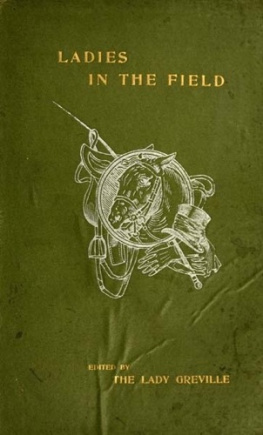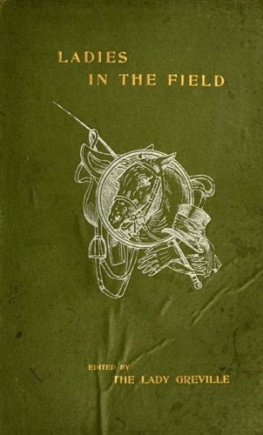Transcribers Note:
In this work, all spellings and punctuation were reproduced from the original work except in the very few cases where an obvious typo occurred. These typos are corrected without comment.
In the original volumes in this set, each even-numbered page had a header consisting of the page number, the volume title, and the chapter number. The odd-numbered page header consisted of the year of the diary entry, a subject phrase, and the page number. In this set of e-books, the year is included as part of the date (which in the original volume were in the form reproduced here, minus the year). The subject phrase has been converted to sidenotes located below the relevant page number.
In the original book set, consisting of three volumes, the master index was in Volume 3. In this set of e-books, the index has been duplicated into each of the other volumes. Navigation links were created to the entries for the current volume.
The Greville Memoirs
(SECOND PART)
A JOURNAL OF THE REIGN
OF
QUEEN VICTORIA
FROM 1837 TO 1852
BY THE LATE
Charles C. F. Greville, Esq.
CLERK OF THE COUNCIL
IN THREE VOLUMES VOL. I.
LONDON
LONGMANS, GREEN, AND CO.
1885
PLERAQUE EORUM, QU RETULI QUQUE REFERAM, PARVA FORSITAN ET LEVIA MEMORATU VIDERI, NON NESCIUS SUM; SED NEMO ANNALES NOSTROS CUM SCRIPTURA EORUM CONTENDERIT, QUI VETERES POPULI ROMANI RES COMPOSUERE. INGENTIA ILLI BELLA, EXPUGNATIONES URBIUM, FUSOS CAPTOSQUE REGES, AUT, SI QUANDO AD INTERNA PRVERTERENT, DISCORDIAS CONSULUM ADVERSUM TRIBUNOS, AGRARIAS FRUMENTARIASQUE LEGES, PLEBIS ET OPTIMATIUM CERTAMINA, LIBERO EGRESSU MEMORABANT. NOBIS IN ARTO ET INGLORIUS LABOR.... NON TAMEN SINE USU FUERIT, INTROSPICERE ILLA, PRIMO ADSPECTU LEVIA, EX QUIS MAGNARUM SPE RERUM MOTUS ORIUNTUR.
TACITUS, Ann. iv. cap. 32.
PREFACE
OF THE EDITOR
TO THE SECOND PART OF THIS JOURNAL.
When the first portion of the Memoirs of the late Mr. Charles Greville, consisting of a Journal of the Reigns of King George IV. and King William IV., was given to the world in the autumn of the year 1874, it was intimated that the continuation of the work was reserved for future publication. Those volumes included the record of events which Mr. Greville had noted in his Diary from the year 1818 to the accession of Her Majesty Queen Victoria in the year 1837, a period of nineteen years. As they were published in 1874, an interval of thirty-seven years had elapsed between the latest event recorded in them and the date at which they appeared. The reigns of George IV. and William IV. already belonged to the history of the past, and accordingly I did not conceive it to be my duty to suppress or qualify any of the statements or opinions of the Author on public men or public events. I am still of opinion that this was the right course for a person charged with the publication of these manuscripts to pursue. I have seen it stated that the first edition of these Journals contains passages which have been suppressed in the later editions: but this is an error. The first edition contained a good many mistakes, which were subsequently pointed out by criticism, or discovered and corrected. Two or three sentences relating to private individuals were omitted, but nothing which concerns public personages or public events has been withdrawn.
Eight and forty years have now elapsed since the date at which the narrative contained in the former volumes was suspended, and I am led by several considerations to the opinion that the time has arrived when it may be resumed. We are divided by a long interval from the administrations of Lord Melbourne, Sir Robert Peel, and Lord John Russell, and, with a very small number of exceptions, no one survives who sat in the Cabinets of those statesmen. Nearly half a century has elapsed since the occurrence of the events recorded in the earlier pages of these volumes, and in a few months from the publication of them, the nation and the empire may celebrate with just enthusiasm the jubilee of the reign of Queen Victoria. Those who have had the good fortune to witness this long series of events, and to take any part in them, may well desire to leave behind them some record of a period, unexampled in the annals of Great Britain and of the world for an almost unbroken continuance of progress, prosperity, liberty, and peace. It is not too soon to glean in the records of the time those fugitive impressions which will one day be the materials of history. To us, veterans of the century, life is in the past, and we look back with unfading interest on the generations that have passed away.
As far as I am myself concerned, I am desirous to complete, whilst I am able, the task allotted to me by Mr. Greville in his last hours, which indeed I regard as a sacred duty, since I know that in placing these Journals in my hands his principal motive and intention was that they should not be withheld from publication until the present interest in them had expired. The advance of years reminds me that if this duty is to be performed at all by me, it must not be indefinitely delayed, and if any strictures are passed on the Editor of these volumes, I prefer to encounter them in my own person rather than to leave the work in other hands and to the uncertainty of the future.
If I turn to precedent and the example of other writers, it will be found that the interval of time which has elapsed since the latest date included in these volumes, embracing the period from 1837 to 1852, is considerably greater than that which marked the publication of similar contributions to political history. At the head of these must be placed Bishop Burnets History of His Own Time. Bishop Burnet had lived in confidential relations with four Sovereigns and their Ministers, and it would be a mistake to compare the position of Mr. Greville (who never filled any office of a political nature, and who never lived in confidential intercourse with the Court) with that of the bold adviser of Charles II. and James II., and the trusted councillor of William and Mary. Bishop Burnet finished his history of the reigns of Charles II. and James II. about the year 1704; that of William and Queen Anne between 1710 and 1713. In 1714 he died. The first folio containing the earlier reigns was published by his son in 1724; the second in 1734, barely twenty years after the death of Queen Anne. Many passages were, however, suppressed, and the text was not restored in its integrity until the publication of the Oxford edition in the present century.
To look back as far as the Memoirs of the fifteenth century, it may be noted that the first edition of the Memoirs of Philippe de Comines, who had lived in the confidential intimacy of King Louis XI. and King Charles VIII. of France, was published in Paris in 1524, under a special privilege obtained for that purpose. Louis XI. died in 1483, and his son Charles VIII. in 1498. Comines himself died in 1511. These Memoirs, therefore, were published at a time when many of the persons mentioned in them, and most of their immediate descendants, were still alive.
Lord Clarendon died in 1674, and the first edition of his History of the Rebellion and the Civil Wars was published in 1702-4, with some alterations and omissions, which were supplied by the publication of the complete text in 1826.
Lord Chesterfield died in 1773, and his Letters to his Son, a work abounding in keen and sarcastic observations on his contemporaries, were published in the following year, 1774.











